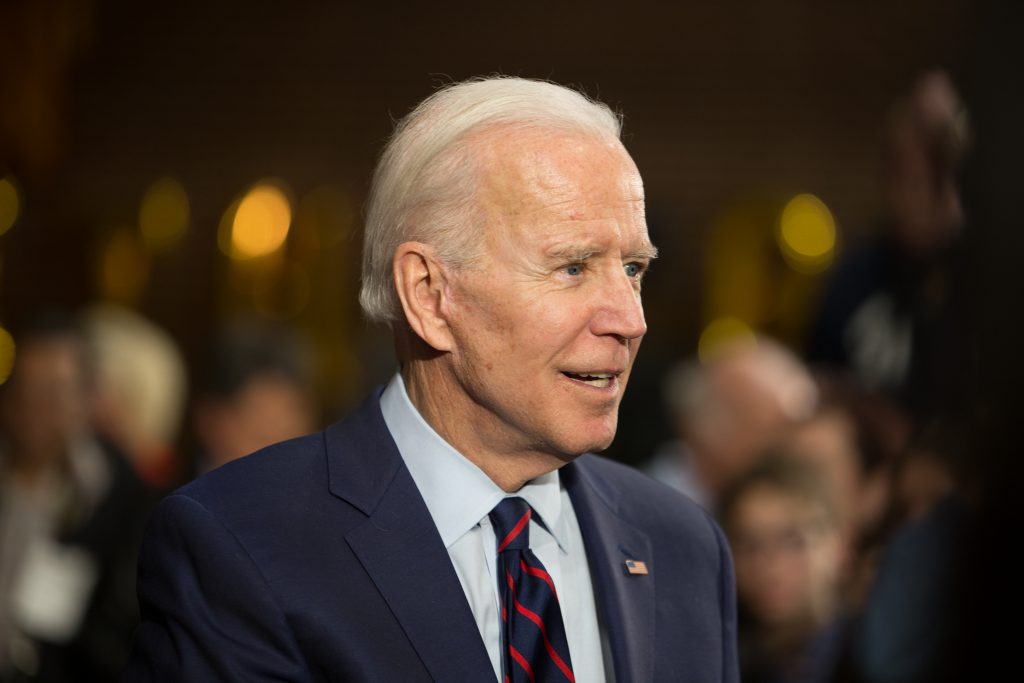While most people would rather forget 2020, it looks like the next President of the United States will be Joe Biden, and as is usually the case when there is a changing of the guard, all that was done by a current Administration could be reversed. While the tech community, in general, has galvanized against this outgoing Administration many US-based Israelis in the tech community came to the US to focus on building their business and chose to stand on the sidelines of the politics ripping America apart.
The United States is entering a new era so it is worth exploring the views of US-based Israeli VCs, and how they view the changing political landscape that could impact the Israeli tech community. Covered below is a recap of what investors believe these changes will mean for Israeli startups building their companies in the US, particularly in the areas of visas, the general business environment, and what this will mean for the US-Israel relationship.

US-Israel tech relationship
On the macro-level, a major question mark is what will be the biggest change in US tech post-elections? While Israelis tend to believe that Trump was good for Israel, US-based Israeli investors on both coasts are generally optimistic about a Biden presidency, the coming changes in the US, and the overall approach to Israel (tech). Political donations are an indicator of views, and this Pitchbook article indicates that “Democrats received 79% of the funds contributed by the VC industry, up from 70% in the 2016 election cycle, Center for Responsive Politics data shows.”
Bay Area based investor Oded Hermoni, Managing Partner at J-Ventures believes that “Trump, from the beginning, was not a big fan of Silicon Valley as Obama was. He was against many of the things the valley stands for – clean energy, data, tech, AI. Biden is a strong believer in tech as the way for the US to keep its place as a leading country and push the economy.”
Eyal Bino, Partner at New York based ICONYC labs states that “while Trump was a big proponent of keeping business at home and limiting international trade, and in particular China’s influence on the US economy, I believe we’ll see a softer and more collaborative approach to global trade relations by the Biden administration.”
When it comes to the US-Israel tech relationship Bino is optimistic that it will be business as usual: “I don’t see any significant impact, as the tech ties have always been strong, no matter who is the president. In fact, I expect that it’ll be easier for Israeli founders to move to the US given the friendlier approach of the new Biden administration to immigration, issuing work visas and lowering the hurdles for entrepreneurs looking to expand their companies to the US market.”
Natty Nashman, Managing Partner at INcapital Ventures shared her thoughts on how the US-Israel relationship fits into the global picture in that “the biggest change will actually be Israel’s relationship with China. The Trump administration has been and was looking to take a harsher look at the China/Israel relationship especially in infrastructure and tech. A tremendous amount of capital from China has flown into the Israeli tech ecosystem and that has created friction with the Trump administration.”
Nashman adds that “furthermore, Biden’s intention to return to the JCPOA may push the newly formed alliance between Israel and the Arab world even further. UAE, Bahrain and the rest of the Gulf states are great partners for tech collaboration and capital raising.”
Visas
A major concern for Israeli companies looking to build their operations in the US is the challenge with visas and the permanence of US-based employment. When it comes to this vital area, the investors shared consensus that Biden’s policies would be a net positive for immigration policy.
As Silicon Valley based Shuly Galili, Founding Partner of UpWest Labs stated, “the Biden/Harris administration will be restoring one of the driving engines behind US innovation, job creation and entrepreneurship and that is progressive immigration policy. Nearly 50% of the Unicorns in the US were founded by immigrant entrepreneurs which include companies such as Pfizer, Zoom, Google, Tesla, etc.”
Bino believes that “the election outcome is going to have a huge impact on visas and immigrants. President-elect Biden plans to reverse the policies of the Trump administration by increasing the number of H-1B visas, eliminating the limit on the number of visas by country and reversing the law that revokes work permits to spouses of H-1B visa holders.” Galili also reflects on the importance of these policies, that “for Israeli entrepreneurs, the visa access to the US is critical in order to build and scale category-leading companies.”
Building a company
In post-election America Israeli founders need to understand there may be changes regarding US market entry, and building a company in the US. Hermoni believes that the “Biden/Trump change is part of larger macro changes, mostly due to COVID-19. The decentralization of Silicon Valley is in a way a blessing for Israeli founders. They can raise and expand over Zoom and can postpone opening offices in the USA. However, the Covid-19 also created a new reality – less openness to anything outside the box.”
Galili states that “what we’ve seen over the years is that penetrating the US market is not a very obvious process for startups based in Israel. It’s even more challenging under COVID19 with remote selling and distant product validation. However, US market access cannot be a “rinse and repeat” approach to the Israeli market.”
Hashman concludes on where things may be headed in 2021 Biden America, “regardless of the election outcome, Israelis entering the US need to understand that the US is not a “monolith”. Different states have different tax and regulatory policies. As such, I would suggest looking into business-friendly states with low taxes and a lower cost of living: Texas (Austin), Tennessee (Nashville), and Tulsa (which is looking to attract Israeli tech) as well as others.”
Jonathan ‘Yoni’ Frenkel has been involved in the US-Israeli tech community for many years, mentoring startups on marketing, hosting events connecting investors with startups, and publishing on the topics of tech and venture regularly. He is currently in Israel leading the efforts of the Tulsa-based fund Atento Capital. He can be reached on LinkedIn here.





